Are you looking to make your voice heard by your local government? Crafting a well-structured letter can be a powerful way to express your concerns and suggestions. In this article, we'll guide you through a simple template that ensures your message is both clear and effective. So, let's dive in and explore how you can connect with your local representatives and advocate for the changes you wish to see!

Salutation and Addressing
Local governments play a crucial role in community development and public services. Engaging with them through formal letters often starts with a proper salutation and addressing format. Typically, one should begin with "Dear [Title] [Last Name]," for instance, "Dear Mayor Smith," followed by the relevant local government department or office's address, like "Department of Community Affairs, 123 Main St, City, State, ZIP Code." This structured approach ensures effective communication with officials such as mayors, city council members, or departmental heads in municipalities across the United States or other countries. Including specific details like the date and reference numbers enhances professionalism and clarity.
Purpose and Intent
The purpose of local government communication is to address community concerns, propose initiatives, and request support for projects that enhance public welfare. Local governments, such as city councils or municipal authorities, have the responsibility to represent the interests of residents within specific jurisdictions, often including neighborhoods, municipalities, or districts. By effectively articulating issues such as infrastructure needs, public safety measures, or environmental sustainability efforts, citizens can engage in meaningful dialogue with their elected officials. Presenting clear intent fosters collaboration between government bodies and constituents, ultimately leading to improved services, policy development, and community-driven solutions.
Detailed Explanation
Writing a letter to a local government requires clarity and precision. The purpose is often to address community issues, request information, or propose changes. Begin the letter by incorporating the local government's official name, such as the "City Council of Springfield." Clearly state the subject matter at the beginning to grab attention, such as "Request for Improved Public Transportation Services." Utilize specific details, including relevant statistics like "35% of residents rely on public transit for daily commuting," to emphasize the significance of the issue. Provide a concise background of the situation, referencing events or policies that may relate, such as "Since the introduction of the new bus schedule in January 2023, complaints have increased by 40%." Finally, outline your requests clearly, suggesting actionable items, like "Consider implementing additional bus routes during peak hours." Conclude with your contact information for follow-up discussions.
Call to Action
Community engagement is crucial for the successful implementation of local government initiatives, such as urban development projects and environmental sustainability programs. Citizens (around 60% of the population) are encouraged to participate in town hall meetings scheduled for next month at the City Council Chamber, located at 500 Main Street. Grassroots campaigns often lead to significant policy changes, especially regarding public safety measures and infrastructure improvements. Collaborative action among residents can foster a sense of accountability and ensure that community needs are met. Local organizations, such as the Community Development Corporation, play a pivotal role in coordinating efforts and advocating for resources.
Closing and Contact Information
Local government engagement is crucial for community development, often leading to valuable changes. This interaction allows constituents to express concerns regarding local issues, such as public safety, infrastructure (like potholes and sidewalks), and community services (like libraries and parks). Effective communication in written form can elicit responses from local officials, potentially resulting in actionable plans or initiatives. Providing clear contact information at the end of the letter reinforces the importance of ongoing dialogue. This includes full name, address, phone number, and email, ensuring local government representatives can follow up on the raised issues, fostering a collaborative relationship for future community improvements.
Letter Template For Writing To Local Government Samples
Letter template of request for community improvement from local government
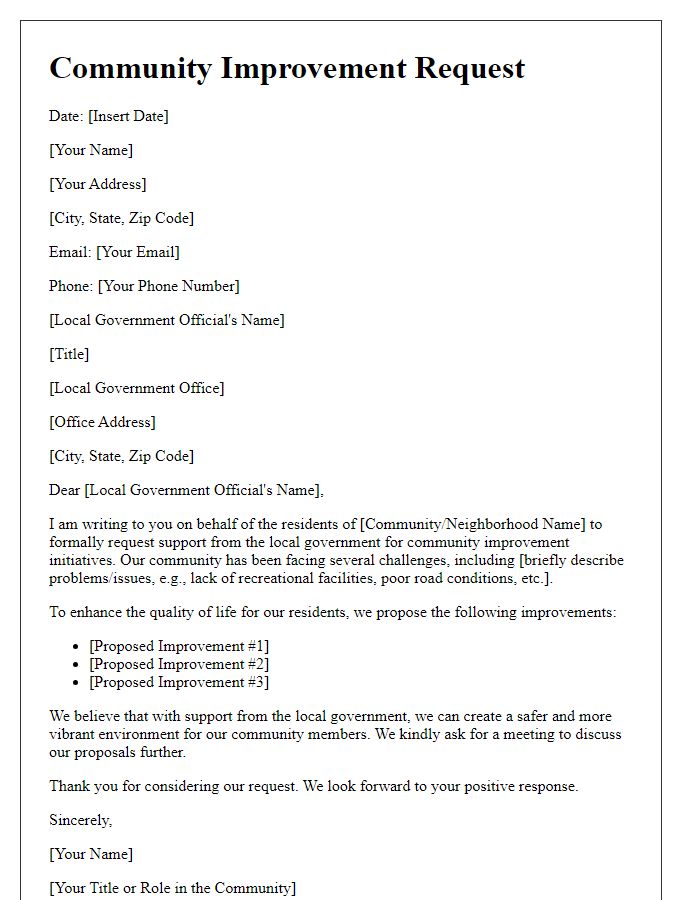
Letter template of inquiry regarding public services offered by local government
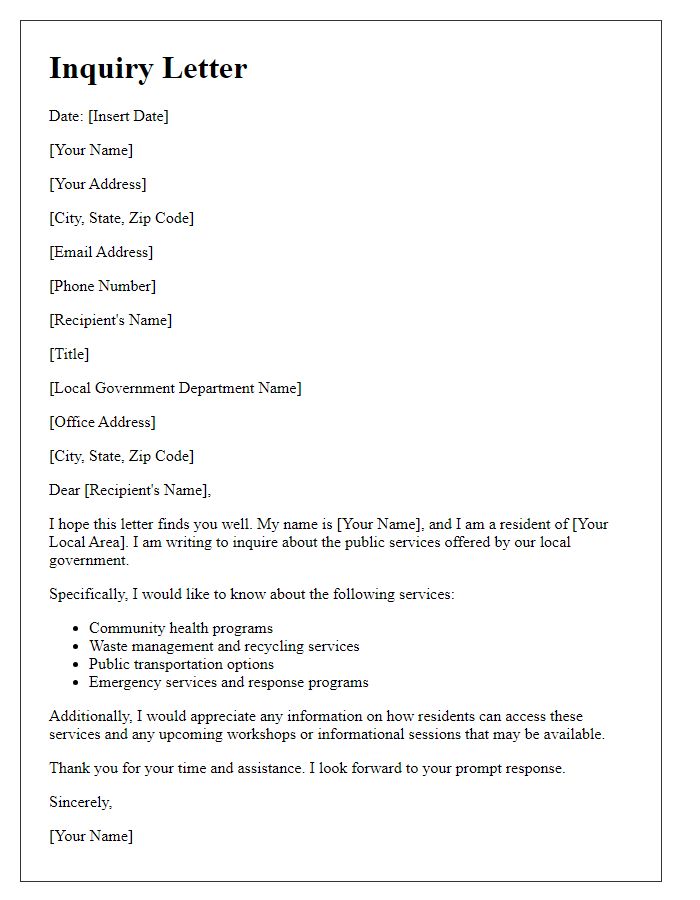
Letter template of proposal for a neighborhood event to local government
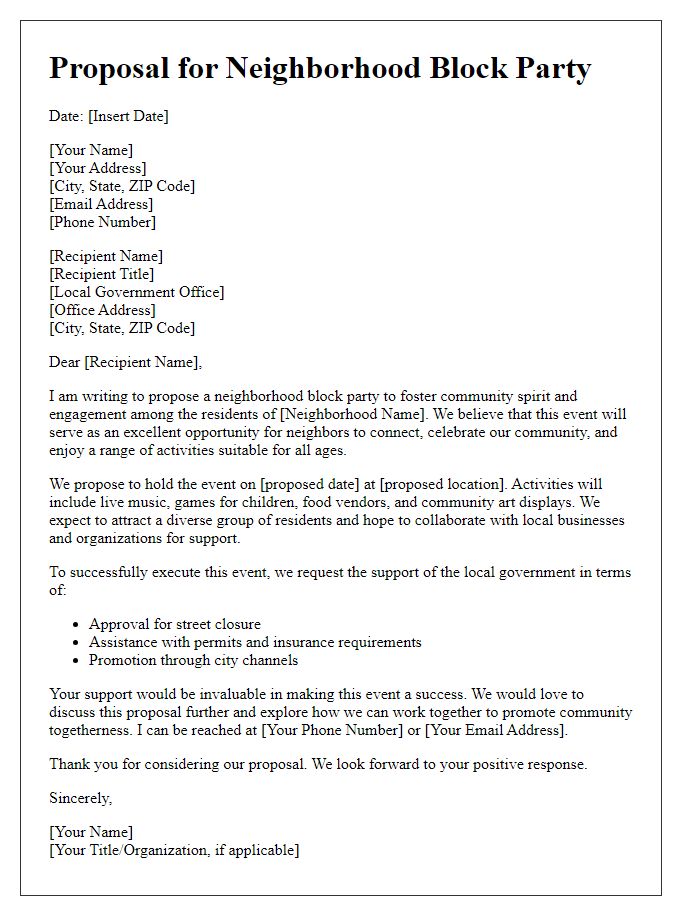
Letter template of suggestion for environmental initiatives to local government
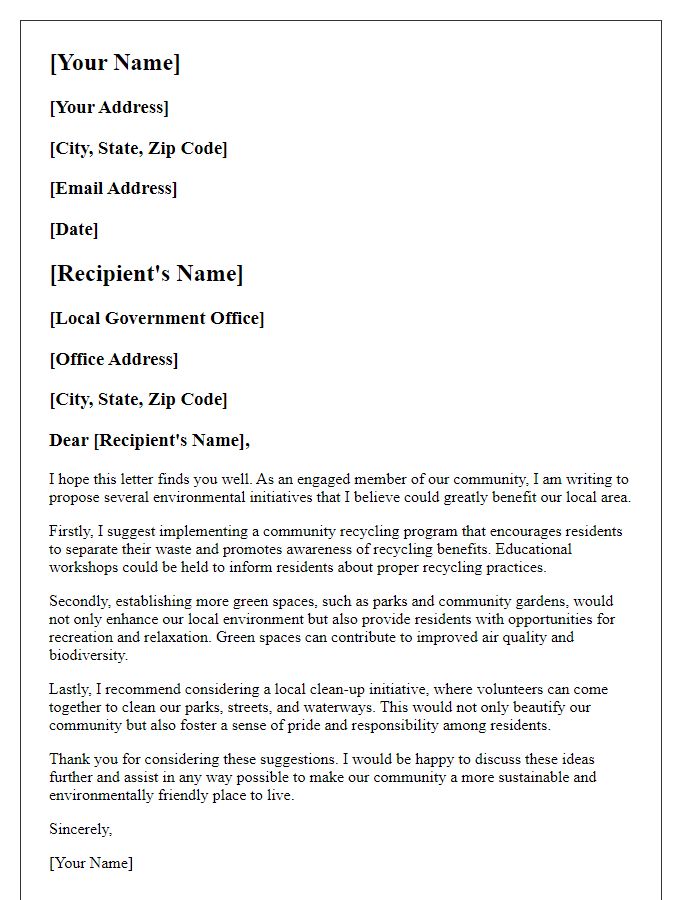

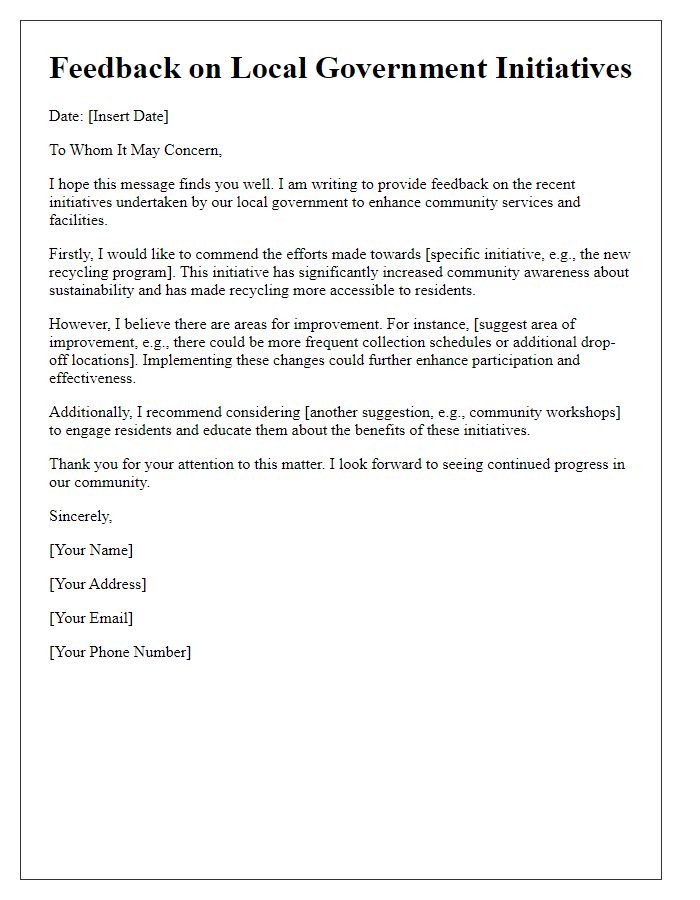
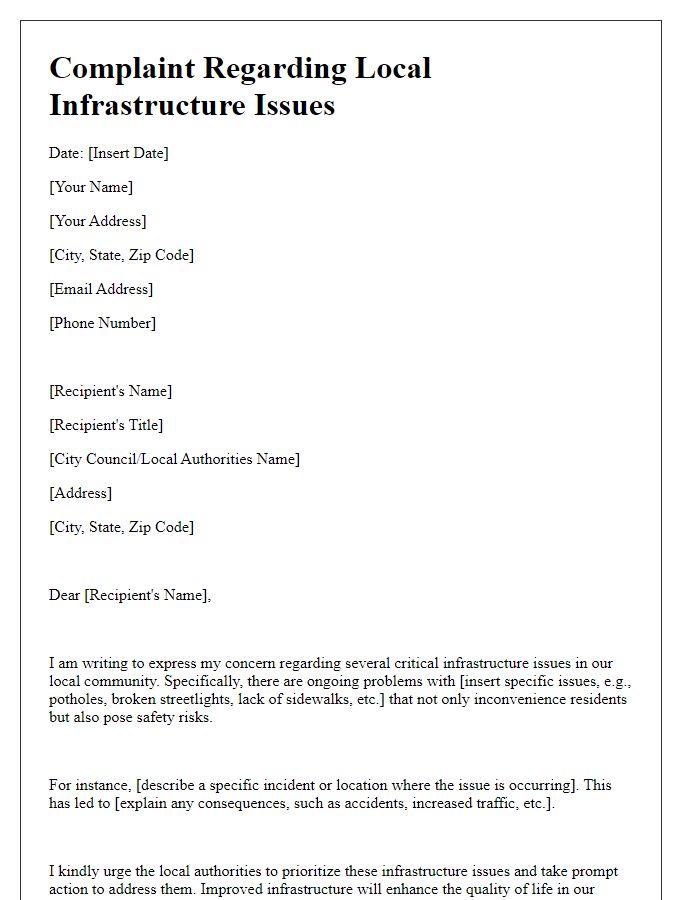
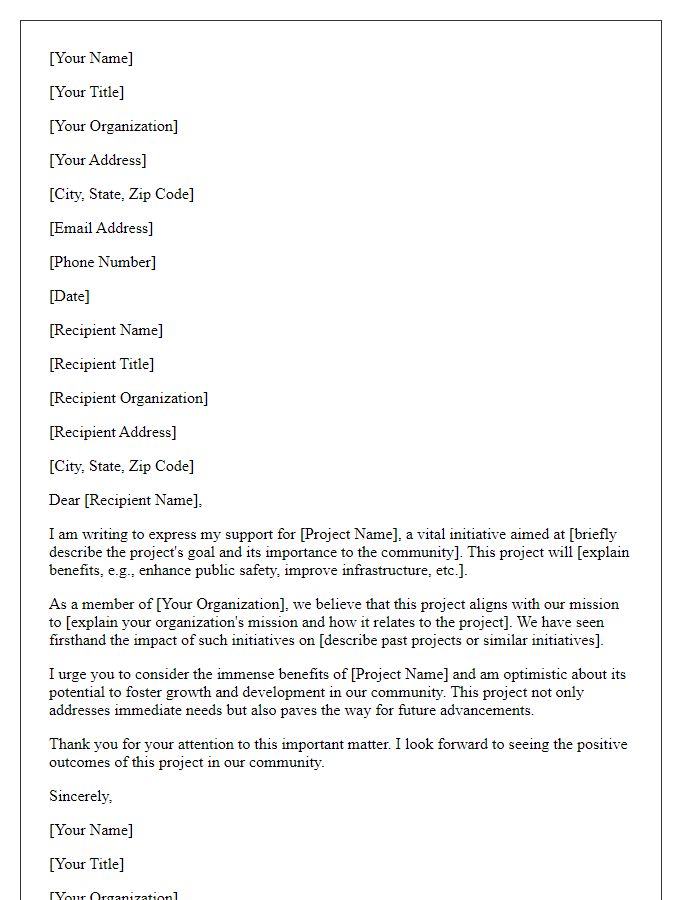
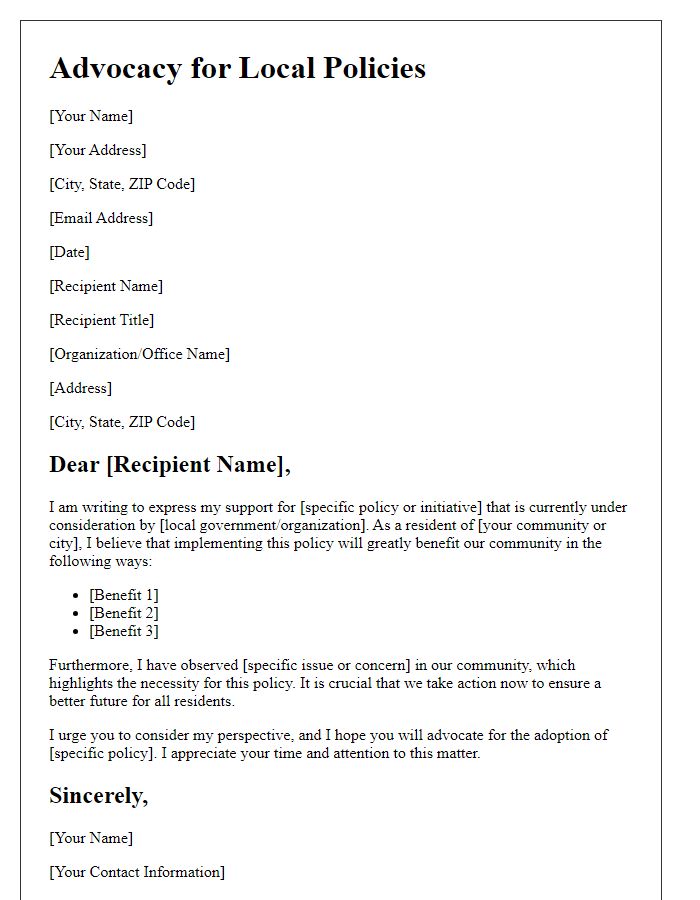
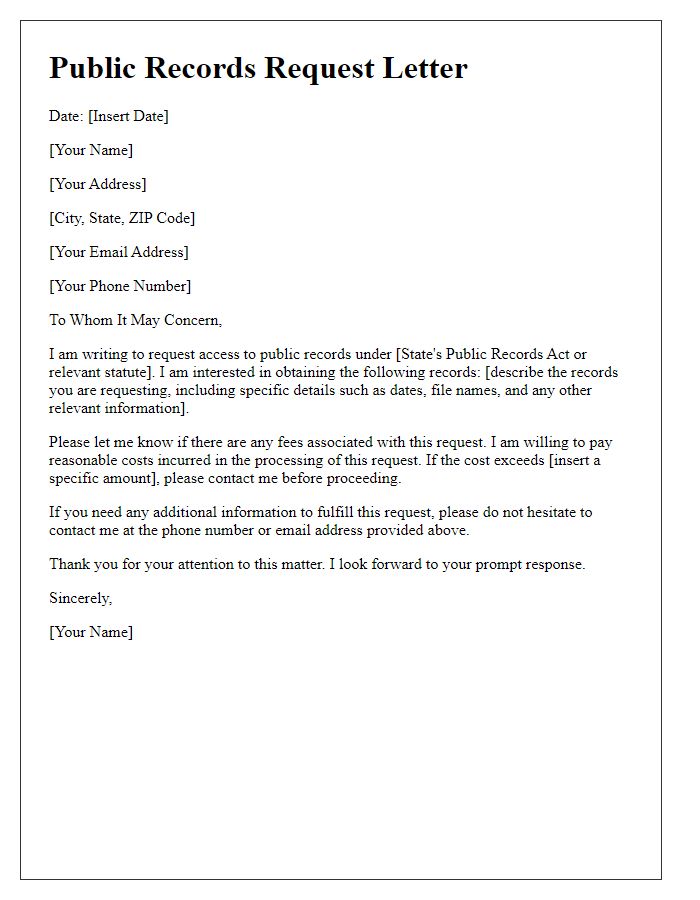
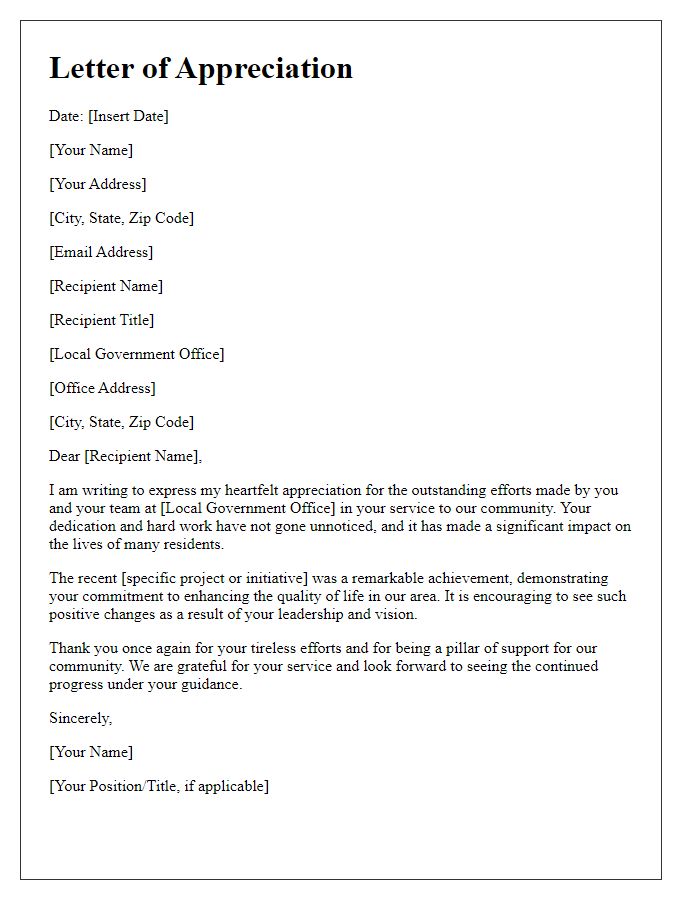

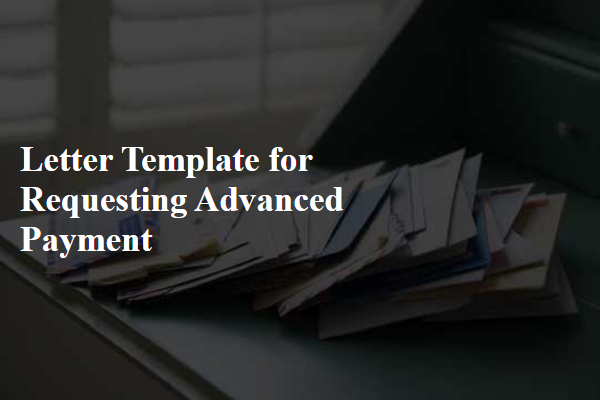
Comments